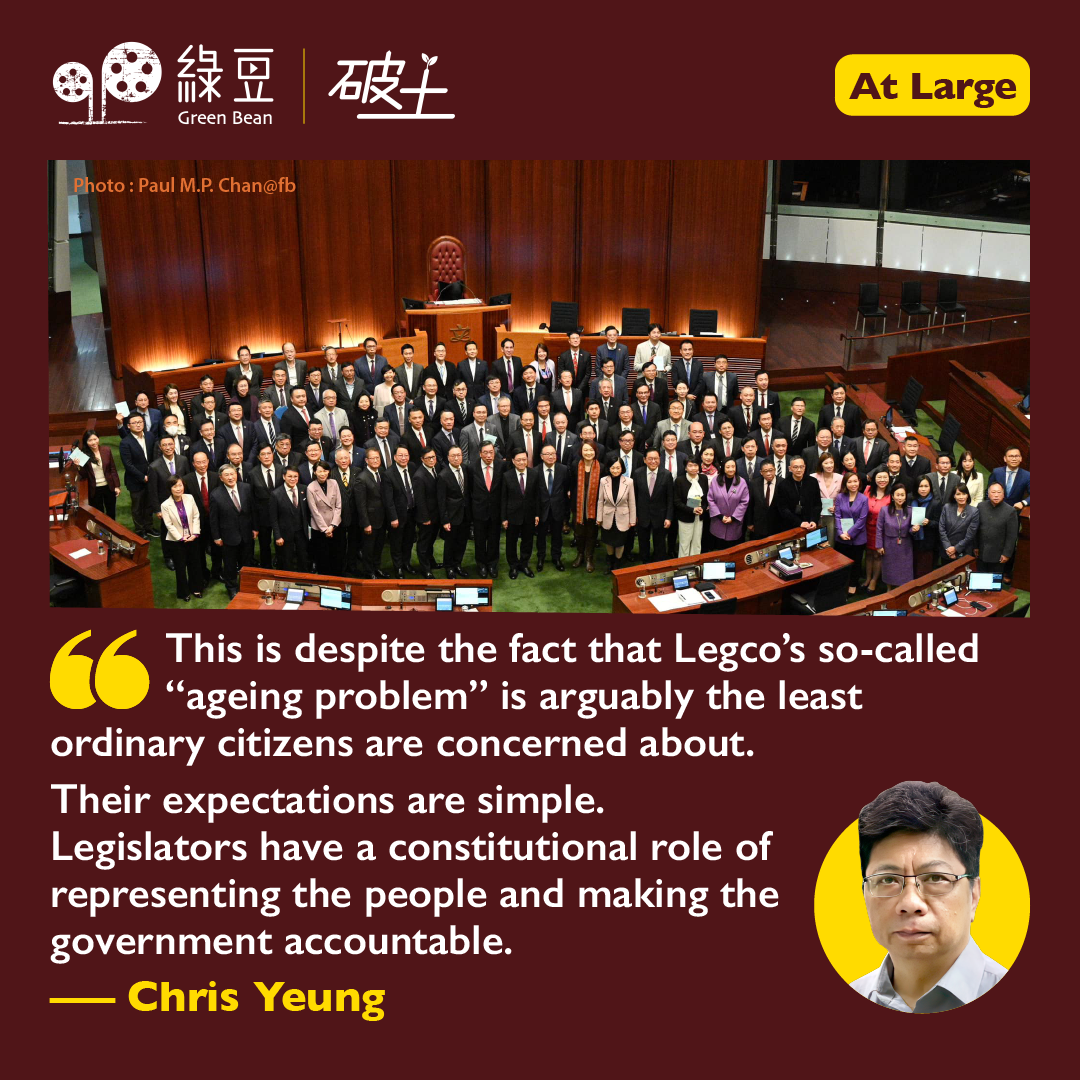Veteran legislators the first blood as fight for seats begins

The jockeying for seats in the December 7 Legislative Council election has kicked off with the beginning of a pre-game of booting out the incumbents who are 70 or above, or put it more politely, the bowing out of veterans to make way for younger aspirants.
As of last Saturday (Oct 11), at least four of the 12 members who have reached 70 have announced they will not seek re-election. Two did so on Saturday. They are Chan Kin-por, 71, who represents the insurance sector, and Tommy Cheung Yu-yan, 76, who represents the catering industry.
Their moves came days after Legco President Andrew Leung and Ma Fung-kwok, who was selected by the 1,200-member Election Committee, made separate announcements of their decisions not to join the December 7 race.
In a related development, Tik Chi-yuen, a former Democrat and leader of the Third Side, a moderate, self-proclaimed pro-democracy party, said on Friday he will not seek re-election. He said they could only afford fighting for one seat, to which their limited resources should go.
On the face of it, moves by incumbents to announce their decisions to step down in the run-up to the nomination period of an election are normal and understandable. Doing so will send a clear message to those who are contemplating the idea of taking a dip into elective politics.
What happened is anything but normal.
The attempt to rejuvenate the next Legco
Open secret has it that the central government’s Liaison Office has played an increasingly important role behind the scenes in the city’s elections. The invisible hands have become more discernible, judging from the announcements of the veterans who are over 70 to step down one after another.
With hindsight, the announcement of Andrew Leung has had the effect of “I jump; you have to jump”. The possibility of more declaring their retirement before this article goes online cannot be ruled out.
It looks certain that the new Legco constituted after the December 7 election will see a marked departure of old faces and the emergence of a batch of younger patriots. The average age of the next Legco will be significantly brought down.
The attempt to rejuvenate the next Legco, the second Legco after the Beijing-masterminded election revamp in 2021, or make it “more youthful” in terms of age, has emerged as one of the major considerations in the ongoing election game plan.
This could not be ironic and funny when revisiting the beginning of the talk early this year about a revamp of the Legco after their current term ends.
Flashed back to March. According to an article published on a pro-establishment media outlet, Hong Kong delegates of the Chinese People’s Political Consultative Conference and National People’s Congress attending the annual “two sessions” in Beijing had been met by Beijing officials. The issue of performance of Legco members had been raised.
The report quoted anonymous pro-establishment figures as saying some NPC and CPPCC delegates told the officials the level of performance and qualities of members, in particular the “newcomers” were “average”.
“Some only repeated what state leaders have said or the nation’s grand plans without innovative ideas and feasible suggestions. Individual newcomers only indulged in doing videos (on social media) to grab attention; the content of which is sensational.” They said there should be more people with high standards and ideas contesting the next Legco elections.
Time will tell whether those young “newcomers” will also be booted out. But events in the past two weeks show the veterans have ended up being the “first blood” in Beijing’s drive to bring more younger faces and, hopefully, fresh vigor to the legislature – at least from public perception.
Legislators’ constitutional role
This is despite the fact that Legco’s so-called “ageing problem” is arguably the least ordinary citizens are concerned about.
Their expectations are simple. Legislators have a constitutional role of representing the people and making the government accountable. To do their job, they have to listen to the people to understand their hopes and fears and tell them to the authorities. To play their role, they have to rigorously monitor the work of the government and ask difficult and tough questions when need be.
To do their job well, they have to spend time doing homework to understand issues from A to Z, form their own views and come out with good ideas and policy options.
The problems of Legco lie more with its sharp decline of its capability in exercising effective checks and balances over the executive authorities. To be fair, it may not be fair to put all the blame onto the lawmakers. The room for them to do so is limited for obvious reasons with plenty of cases in point
In what may emerge as his farewell speech at a Legco policy address debate, Election Committee legislator Paul Tse said on Friday ordinary citizens felt like “the abandoned”, arguing the government has not responded to their anxieties in the blueprint. He urged the government to engage with the people and admit their shortcomings and deficiencies. He lamented that lawmakers only heaped too much praise to the government, yet too little on what people feel.
His lone dissenting voice was a mildly-worded reminder to the government. In response, Chief Secretary Eric Chan said he disagreed with Tse’s remarks.
▌ [At Large] About the Author
Chris Yeung is a veteran journalist, a founder and chief writer of the now-disbanded CitizenNews; he now runs a daily news commentary channel on Youtube. He had formerly worked with the South China Morning Post and the Hong Kong Economic Journal.